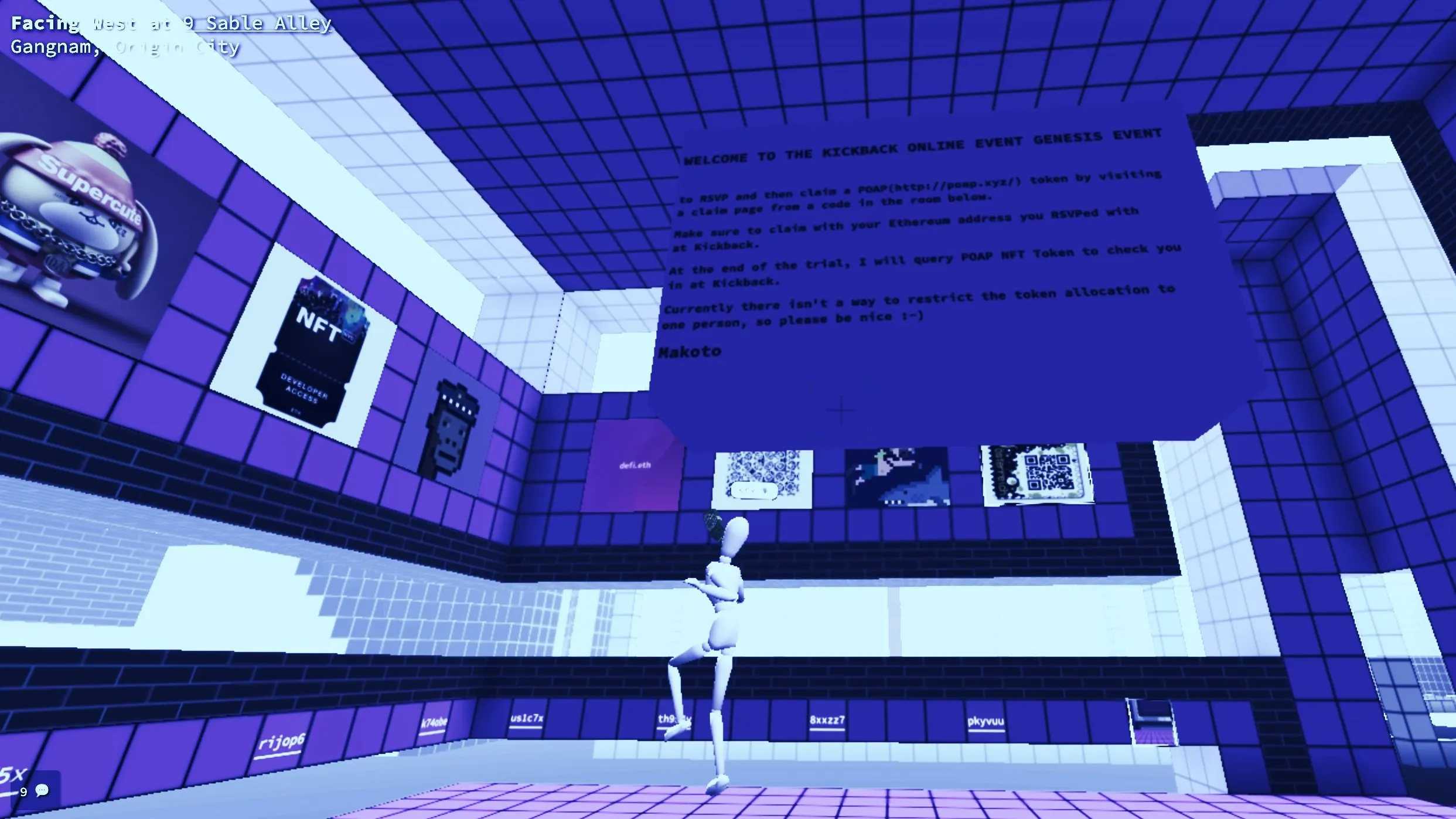In brief
- Kickback's events are designed to encourage more people to attend.
- They use cryptocurrency and blockchain to reward those who turn up.
- This meetup was held in a virtual world on the Ethereum blockchain.
Kickback held a virtual event on the Ethereum blockchain on February 15. Like any virtual event, attendees met in an online room and were able to interact with one another. But this time, they were rewarded for turning up.
Kickback is an event ticketing platform designed to encourage more people to go to events. Anyone who wants to go to an event must place a deposit using cryptocurrency. If they don’t turn up, their deposit gets shared among the other attendees, meaning whoever does turn up, gets a little kickback.
Normally, Kickback’s events have been limited to meatspace. In Japan last year, it held several events, one on SpankChain CEO Ameen Soleimani’s wacky Moloch DAO idea, one on the Ethereum stablecoin DAI and a good old fashioned whiskey tasting event. But it couldn’t resist the lure of cyberspace.
“I got two separate requests, one from our early request form and another is the conversation with the founder of TryRoll, Bradley,” Inoue told Decrypt. (TryRoll is a form of social money, that lets you create a cryptocurrency with your name on it).
The most successful events I've been involved in were a blend of IRL & VR. It's got to be the way of the future...
— Sparrow (@blackboxdotart) February 25, 2020
“I was intrigued by their requests. It's a new world I was not aware of. But at the same time, it could be the perfect early adopters niche,” he added.
Only the event wasn’t easy to build.
Living the Ethereum lifestyle
There were two key bits of technology that Kickback needed to make this virtual event happen.
First, it needed an event space. But not just any online room would do—it needed to be able to interact with the Ethereum blockchain (Kickback’s whole system runs on Ethereum). So Inoue elected to use CryptoVoxels, a virtual world literally built and run on the Ethereum blockchain itself.
Second, it needed some way of proving that attendees had turned up. Inoue looked to POAP, a proof-of-attendance protocol that uses Ethereum-based non-fungible tokens (NFTs) to mark attendance. When you turn up, you receive the unique token, proving that you were there.
So, to clarify:
- The event was held in a virtual environment on the Ethereum blockchain.
- Attendees put down deposits in Ethereum-based tokens.
- They picked up NFTs to prove that they attended the event.
- A clever contract took all of the deposits, pooled them together and then sent them back out to those who turned up.
Magic.
The challenges of using blockchain
Going all in on blockchain did have some drawbacks.
“Using POAP was a bit overkill because we had to manually place tokens and remove as they are claimed. It could be just replaced with Google Docs to collect Ethereum addresses,” Inoue said.
He added that using NFTs are not necessary, but that they are good for moving Kickback towards a completely trustless system where it’s entirely run on the blockchain. And that’s where the real reward will be.

